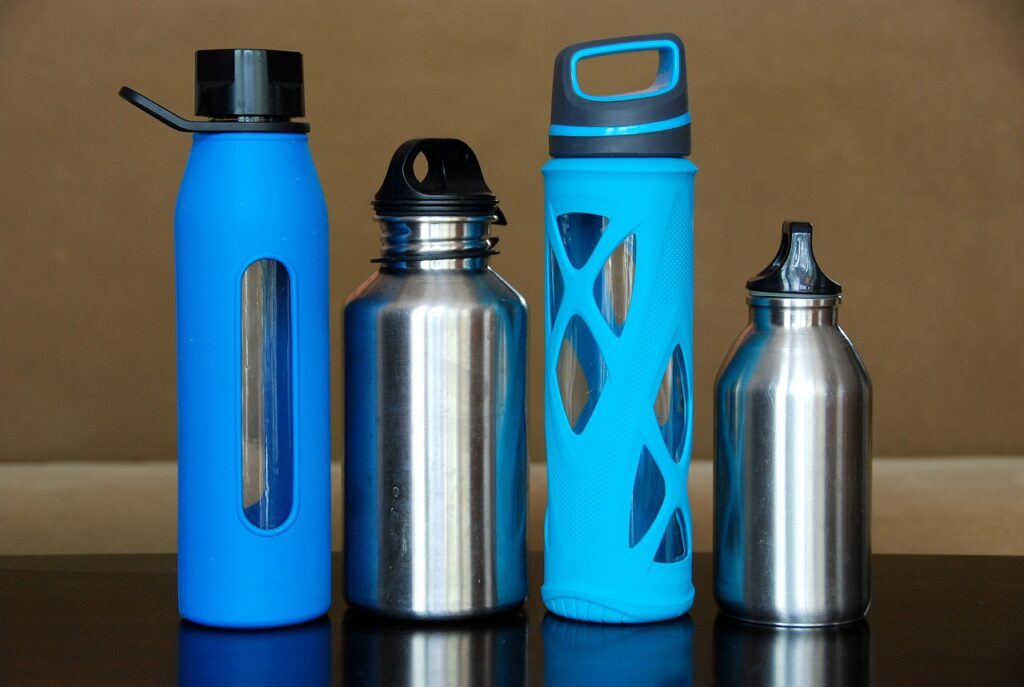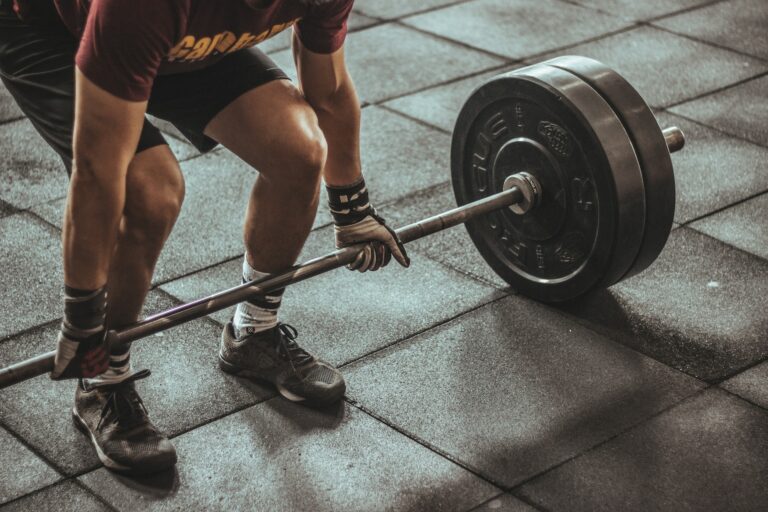Meal Timing and Workout Recovery: The Ultimate Performance Guide

- Should You Train To Muscle Failure Every Set? What You Need To Know - March 4, 2025
- Nutrition in a Hurry: Top Post-Workout Snacks for Active People - February 20, 2025
- 15 Healthy Meal Prep Recipes: Your Weight Loss Made Easy - February 18, 2025
To maximize your workout performance and recovery, you’ll need to carefully time your nutrition around training sessions. Consume complex carbs 2-3 hours pre-workout for sustained energy, and aim for 16-20 oz of water to guarantee proper hydration. Within 30 minutes post-exercise, target 20-25g of high-quality protein along with fast-digesting carbs to optimize muscle recovery. For endurance events over 90 minutes, increase your carb intake to 7-10g/kg body weight in the days leading up. Your nighttime nutrition matters too – a balanced snack of 20-40g protein before bed supports overnight muscle repair. These foundational principles are just the beginning of performance optimization.
Key Takeaways
- Consume a balanced meal 2-3 hours before exercise, including complex carbohydrates and moderate protein for sustained energy during workouts.
- Ingest 20-25g of protein with fast-digesting carbohydrates within 30 minutes post-workout to optimize muscle recovery and glycogen replenishment.
- Structure meal frequency around training sessions, with substantial meals 3-4 hours before and recovery snacks 30-60 minutes after exercise.
- Maintain daily protein intake of 1.6-2.2g/kg body weight, distributed evenly across meals to support continuous muscle protein synthesis.
- Include a pre-bed snack containing 20-40g protein and complex carbohydrates to support overnight muscle repair and recovery.
The Pre-Workout Nutrition Window
Three fundamental principles govern pre-workout nutrition timing: nutrient availability, digestive comfort, and metabolic readiness. You’ll need to consume pre-workout snacks 2-3 hours before training to optimize these factors. This window allows your body to fully digest and convert food into readily available energy sources.
For high-intensity sessions, your muscles require immediate access to glycogen stores, which you’ll build through properly timed carbohydrate intake. If you’re training within 60 minutes, stick to easily digestible carbs and avoid high-fat foods that can slow gastric emptying. Complex carbohydrates consumed 2-3 hours pre-workout provide sustained energy, while simple sugars work better for immediate pre-exercise fueling. You’ll want to adjust portion sizes based on workout intensity and duration to prevent both under-fueling and digestive discomfort. Additionally, maintaining proper hydration levels is crucial for optimal performance during your workouts.
Carb Loading for Peak Performance
While carb loading has become a popular strategy among endurance athletes, understanding its scientific principles is essential for effective implementation. You’ll need to increase your carbohydrate intake to 7-10g per kilogram of body weight 2-3 days before your event, focusing on complex carb sources like whole grains, sweet potatoes, and quinoa.
Your fueling strategies should adapt to your training intensity and duration. For events lasting over 90 minutes, you’ll benefit most from carb loading, as it maximizes muscle glycogen stores. Start by gradually reducing training volume while increasing carbohydrate intake. This approach helps your muscles store up to 50% more glycogen than normal, providing sustained energy during prolonged exercise and delaying the onset of fatigue. Additionally, incorporating fast-digesting carbs post-exercise can further enhance glycogen replenishment and support recovery.
Post-Exercise Meal Planning
Proper post-exercise nutrition directly impacts your training adaptations and recovery capacity, building upon the pre-exercise fueling strategies discussed above. You’ll need to consume both protein and carbohydrates within 30 minutes after your workout to optimize muscle glycogen replenishment and protein synthesis.
Post-workout snacks should provide 20-25g of high-quality protein alongside fast-digesting carbohydrates. Recovery smoothies offer an efficient option, as liquid nutrition absorbs quickly and you can easily customize the macro ratios. Combine whey protein, banana, and tart cherries for an evidence-based recovery blend that addresses multiple recovery pathways. Including ingredients like chia seeds in your smoothie can further enhance the nutrient profile by providing omega-3s and fiber.
For longer training sessions exceeding 90 minutes, you’ll need to increase your carbohydrate intake to 1.0-1.2g per kg of body weight during the immediate recovery period.
Overnight Recovery Strategies

Nighttime nutrition also plays a crucial role in recovery. The National Strength and Conditioning Association (NSCA) suggests consuming a balanced snack containing 20-40g of protein before bed to support overnight muscle repair.
Sleep represents a vital window for physiological recovery and adaptation after training. During this period, your body maximizes muscle repair processes and hormonal regulation in alignment with natural circadian rhythms. You’ll need to enhance both sleep quality and duration to improve your recovery methods.
- Consume a balanced nighttime snack containing 20-40g of protein and complex carbohydrates about 30 minutes before bed to support overnight muscle protein synthesis.
- Practice evidence-based relaxation techniques like meditation or deep breathing to reduce cortisol levels and improve sleep quality.
- Create an environment that promotes ideal sleep by maintaining a cool room temperature (65-68°F), eliminating blue light exposure, and implementing consistent stress management routines.
- Additionally, maintaining adequate protein intake is crucial for optimizing muscle recovery during this period.
These strategies work synergistically to maximize your body’s natural recovery processes during this vital overnight window.
Protein Timing Throughout Training
Beyond overnight recovery, strategic protein consumption during your training window directly impacts muscle adaptation and performance outcomes. You’ll maximize protein synthesis by consuming 20-25g of high-quality protein 2-3 hours before training and another serving within 30 minutes post-workout. During extended training sessions lasting over 90 minutes, consider supplementing with branched-chain amino acids to prevent muscle breakdown and maintain ideal nutrient absorption. BCAAs serve as an energy source during workouts, especially when glycogen is low.
Space your protein intake throughout the day in 3-4 hour intervals, aiming for 1.6-2.2g per kilogram of body weight. This approach maintains a positive protein balance and supports continuous muscle repair. For enhanced results, combine your protein intake with carbohydrates post-workout to accelerate glycogen replenishment and amplify the anabolic response.
Hydration and Exercise Performance

While protein timing plays an essential role in recovery, maintaining ideal hydration status directly impacts your exercise performance, metabolic function, and physiological adaptation. Implementing effective hydration strategies before, during, and after training guarantees peak blood volume, nutrient delivery, and thermoregulation.
- Monitor your urine color and body weight fluctuations to assess hydration status accurately
- Calculate sweat rate during different activities to determine fluid replacement needs
- Balance electrolyte intake with water consumption to prevent hyponatremia
You’ll need to adjust your fluid intake based on exercise intensity, duration, and environmental conditions. For sessions lasting longer than 60 minutes, include electrolyte supplementation to maintain proper electrolyte balance and prevent performance decline. Pre-hydrating with 16-20 oz of fluid 2-3 hours before exercise establishes a foundation for sustained performance.
Proper hydration is essential for exercise performance and recovery. The American College of Sports Medicine (ACSM) provides guidelines for fluid intake before, during, and after exercise to maintain optimal hydration status.
Morning Vs Evening Workouts
When considering workout timing, both morning and evening sessions offer distinct physiological advantages backed by research. Morning workouts can enhance your morning motivation, kick-start your metabolism, and promote better sleep patterns by regulating your circadian rhythm. You’ll also benefit from higher testosterone levels and cooler ambient temperatures.
Evening workouts capitalize on your natural evening energy peaks when your core body temperature and muscle strength reach their highest levels. You’ll experience enhanced reaction times, increased power output, and better endurance performance between 4-7 PM. Your joints and muscles are also more flexible during evening hours, potentially reducing injury risk.
Choose your workout time based on your performance goals, daily schedule, and natural energy patterns rather than solely following general recommendations.
Rest Day Nutrition Protocols
Although many athletes focus intensely on workout-day nutrition, rest-day nutrition protocols play an equally essential role in muscle recovery and performance adaptations. Your body’s repair processes remain active during rest days, demanding strategic nutrient timing and selection to optimize recovery outcomes.
- Maintain protein intake at training-day levels (1.6-2.2g/kg) through balanced meals and rest-day snacks to support continuous muscle protein synthesis
- Adjust carbohydrate intake based on next-day training demands while prioritizing nutrient-dense sources like fruits, vegetables, and whole grains
- Leverage recovery smoothies containing antioxidant-rich ingredients to combat residual inflammation and support cellular repair processes
You’ll want to distribute your meals evenly throughout the day, ensuring a steady supply of nutrients while avoiding excessive caloric intake that could compromise body composition goals during reduced activity.
Meal Scheduling for Multiple Sessions
Since training multiple times per day creates unique nutritional demands, you’ll need a strategic meal scheduling approach to maintain performance across sessions. Structure your meal frequency around workout timing, aiming to consume substantial meals 3-4 hours before each session. Incorporate strategic snacking 30-60 minutes before your second workout to replenish glycogen stores and maintain energy levels.
Between sessions, prioritize easily digestible carbohydrates combined with moderate protein to accelerate recovery. You’ll want to consume 0.25-0.3g of protein per kg of body weight and 1.0-1.2g of carbohydrates per kg within the first-hour post-session. If your sessions are less than 6 hours apart, rely on liquid nutrition to minimize gastrointestinal stress while maintaining necessary nutrient intake.
Supplement Timing Best Practices

To maximize the benefits of your supplement regimen, you’ll need to carefully coordinate intake timing with your training schedule. Understanding supplement absorption rates and nutrient synergy will help you create an ideal supplementation strategy that enhances performance and recovery.
- Take pre-workout supplements 30-60 minutes before training to guarantee peak bloodstream levels during exercise
- Consume fast-acting protein supplements within 30 minutes post-workout when muscle protein synthesis is heightened
- Time micronutrient supplements with meals to improve absorption through food-based nutrient synergy
Strategic timing isn’t just about when you take supplements, but also how you combine them. For example, taking vitamin C with iron supplements can increase iron absorption, while calcium can interfere with zinc uptake. Plan your supplement schedule to avoid negative interactions while maximizing beneficial combinations.
Frequently Asked Questions
Can I Exercise Effectively While Following a Ketogenic Diet?
Like a well-tuned engine, your body can thrive on ketones. You’ll maintain exercise intensity and gain ketogenic benefits, though you’ll need 2-3 weeks to adapt before reaching peak performance levels.
How Does Altitude Affect Nutrient Needs During Exercise and Recovery?
At altitude, you’ll need more nutrient-dense foods as your body demands higher carbohydrate and iron intake. Altitude adaptation increases metabolic rate and oxygen requirements, affecting both exercise performance and recovery needs.
Should Meal Timing Change During Menstruation for Female Athletes?
Like a well-tuned orchestra, your body’s menstrual cycle requires adapting meal timing. You’ll need more iron-rich foods and carbs during menstruation while accounting for hormonal fluctuations affecting metabolism and recovery.
Do Certain Medications Interfere With Workout Nutrition Absorption?
Certain medications can greatly impact your nutrient absorption. You’ll need to monitor medication effects on protein uptake, mineral absorption, and hydration status. Consult your healthcare provider about the ideal timing between medications and meals.
How Does Jet Lag Impact Optimal Meal Timing for Traveling Athletes?
Your body clock’s disruption affects nutrient timing considerably. You’ll need to gradually synchronize meals with your new time zone to minimize jet lag effects on performance and recovery.
Final Thoughts
You’ve mastered the intricate science of meal timing, yet ironically, the most essential factor isn’t perfect scheduling—it’s consistency in execution. While you’re armed with evidence-based protocols for nutrient timing, remember that even elite athletes occasionally miss their windows. Focus on implementing 80% of these strategies consistently rather than pursuing 100% perfection. Your body’s adaptation mechanisms are remarkably forgiving when supported by regular, science-backed nutrition patterns.
Table of Contents








